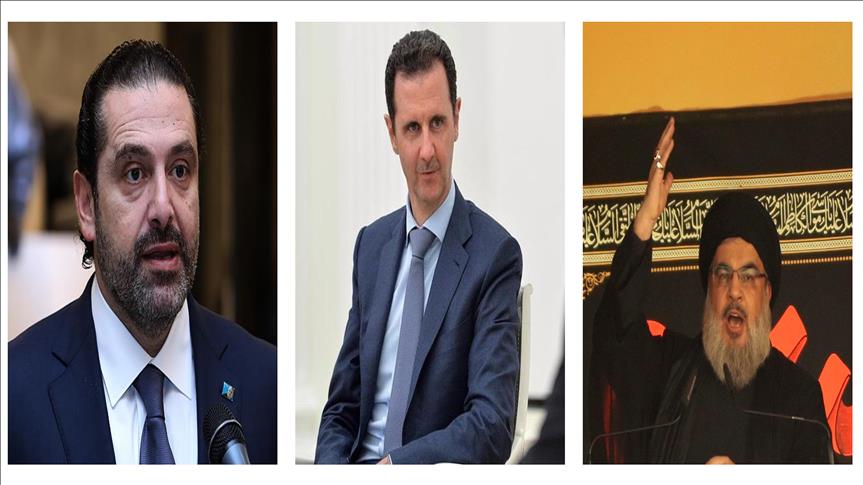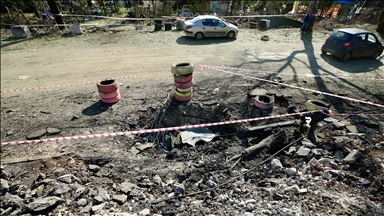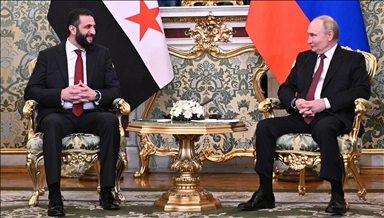Lebanon’s incoming gov’t and normalized ties with Syria
The issue of normalizing ties with Damascus is hindering formation of country's next government, say observers

By Mahmut Geldi
BEIRUT
Since Lebanon’s May 6 parliamentary election, debate over the normalization of ties with Damascus has served to hinder the formation of the country’s next government.
While Lebanon’s March 8 Bloc, which includes Hezbollah and its allies, wants to improve relations with the Syrian regime, the March 14 Bloc, led by PM Saad al-Hariri (who has been tasked with forming a government), rejects the notion of normalized ties.
In mid-August, Hariri stated that no new government would be drawn up as long as leading Lebanese political actors insisted on normalizing relations.
Responding to this assertion, Hezbollah Secretary-General Hassan Nasrallah said: “I advise those leaders with whom we differ on the issue of relations with Syria: don’t put yourselves in a position from which you will have to later withdraw.”
“Wait for a while and watch the situation in Syria,” Nasrallah urged his opponents. “Lebanon isn’t an island.”
Elie Mahfoud, for his part, leader of Lebanon’s Change Movement, told Anadolu Agency that the Syrian regime “hopes to gain international legitimacy through its Lebanese allies”.
Noting that Hariri would “never agree” to normalize ties with Syrian leader Bashar al-Assad, Mahfoud said that pro-Assad groups within Lebanon would nevertheless continue to exert pressure in this regard.
He went on to stress the difficulty of drawing up a new government if Lebanon’s political parties and groups failed to achieve a degree of consensus on the Syria file.
“Making concessions will only result in a government managed by others,” he said, “and PM Hariri is fully aware of this.”
According to the politician, the insistence of some political actors on normalizing ties with Damascus “is ultimately aimed at weakening PM Hariri”.
“Diplomatic normalization with Syria would mean that all of Lebanon’s efforts in the international arena will have been in vain,” he said. “Meanwhile, all financial aid and investment in Lebanon would evaporate.”
Faisal Abdel-Sater, a Lebanese political science expert known to be close to Hezbollah, said Hariri's stated refusal to normalize ties with Damascus constituted “yet another obstacle” in the way of forming a government.
Foreign powers, he said, especially Saudi Arabia, “have also influenced the process of forming a government.”
“He [Hariri] is exploiting the issue of relations with Syria to justify his ongoing failure to draw up a cabinet,” Abdel-Sater said.
He added: “Hariri is also taking advantage of the fact that the constitution doesn't lay down a deadline for unveiling a new government.”
Predicting that ties with Syria would eventually be normalized, Abdel-Sater said that Hariri did “not have the right to use the Syria file to monopolize policymaking”.
“The prime minister knows relations with Syria will eventually be normalized,” he added. “The incoming government will have no choice but to smooth relations between the two neighbors.”
Relations between Lebanon and Syria have been rocky since the latter was accused of orchestrating the 2005 assassination of former Prime Minister Rafik Hariri -- the current prime minister’s father -- in Beirut.
After war erupted in Syria in 2011, relations between the two countries were ruptured completely. Since then, the ongoing conflict next door has deepened the rift between Lebanon’s two main political camps.
*Ali Murat Alhas contributed to this report from Ankara
Anadolu Agency website contains only a portion of the news stories offered to subscribers in the AA News Broadcasting System (HAS), and in summarized form. Please contact us for subscription options.







